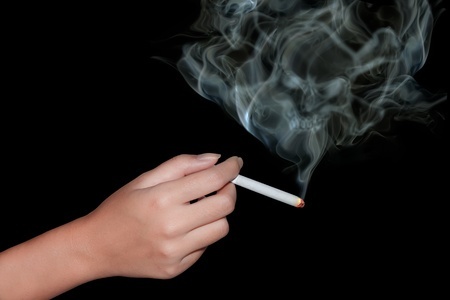Mums-to-be who want to stub out the habit are being recruited by University of Aberdeen researchers onto an innovative smoking cessation study.
One-to-one meetings at home with a midwife plus the loan of a device for measuring air quality in their house are on offer to volunteers taking part six weekly sessions.
Dr Steve Turner, Senior Clinical Lecturer in Child Health at the University of Aberdeen, is heading up the research. He said: “Smoking during pregnancy increases mum's risk for complications before and during labour. It stunts the baby's overall growth and affects its development. Research has also shown that babies whose mothers quit during pregnancy have normal sized lungs and brains but babies whose mums who smoke throughout pregnancy have smaller brains and lungs.”
“In Grampian we know that 20% of pregnant mothers smoke and that many non-smoking expectant mothers are exposed to second hand smoke on a daily basis. We also know that quitting smoking or creating smoke free homes can be difficult.
“We are exploring whether we can help mothers-to-be to quit smoking, or even cut down, by providing them with measurements of indoor air quality. 85% of second hand smoke is invisible but just because it cannot be seen does not mean it is not doing harm. We can measure 100% of second hand smoke.
“In an earlier study we provided mothers who smoked with air quality devices to measure the second hand smoke levels in their home. When the mothers saw the readings they were shocked, they made changes to where they smoked and second hand smoke exposure to their pre-school children was cut by one third.
“In this study, we will offer women who are pregnant, and who smoke, an opportunity to receive one-on-one meetings at home with a specially trained midwife. The aim is to help mothers quit or to reduce their smoking.
“Half of mothers-to-be will receive air quality measurements at the start of the six week study and the remainder will get these at the end. This will enable us to see whether the air quality measurements add to the benefit of the one-to-one meetings with the midwife.
“The ultimate hope is that we can help mothers who smoke to change their habits, and ideally quit. Stopping smoking is probably the best single thing that a mother can do to improve her health and that of her unborn child”
Researchers hope to recruit 20 mothers between now and August. Potential volunteers should contact Liz and Mo on 07815494446 or 01224 438449 or alternatively crib@abdn.ac.uk


